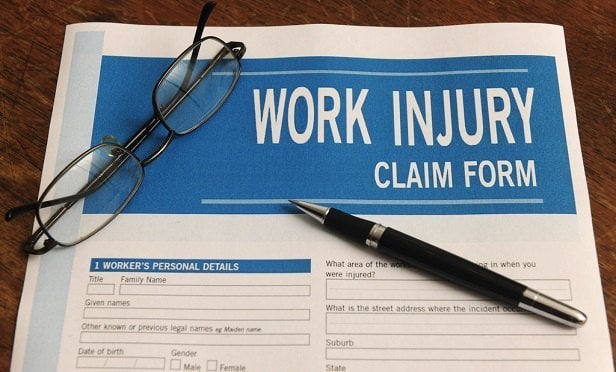 nearly one in five employers with an HDHP report an increase in illegitimate workers' comp claims since 2017—almost three times as many as those without an HDHP. (Photo: Shutterstock)
nearly one in five employers with an HDHP report an increase in illegitimate workers' comp claims since 2017—almost three times as many as those without an HDHP. (Photo: Shutterstock)
Employers that offer accident or short-term disability insurance to their workers might derive another benefit: a drop in fraudulent workers' comp claims on injuries actually sustained outside the job because employees couldn't afford the out-of-pocket costs, according to Guardian Life's report, "Risk Redirect: Using Group Accident and Disability Insurance to Reduce Illegitimate Workers' Compensation Claims."
Nearly half (46 percent) of the 1,500 employee benefits decision-makers surveyed by Guardian report a decline in workers' compensation claims after offering accident or short term disability insurance. More and more employers are offering accident and/or disability insurance plans to help offset out-of-pocket costs and bridge gaps in high-deductible health plans – which also can deter workers from reporting an off-the-job injury as a workers' comp claim in order to avoid paying for hospital or doctor bills, according to the report.
Related: The aging workforce and workers' compensation
"Employers offering high deductible health plans are more likely to have experienced an unexpected increase in questionable workers' comp claims," Guardian writes. "They attribute at least part of their increase in illegitimate claims to workers misrepresenting off-the-job injuries or illnesses as work-related."
Indeed, nearly one in five employers with an HDHP report an increase in illegitimate workers' comp claims since 2017—almost three times as many as those without an HDHP, according to the report.
"Employers offering only high deductible medical coverage are even more likely to report increased workers' comp abuse," Guardian writes. "Larger organizations, which are more likely to offer HDHPs, are also more likely to report increased workers' comp abuse in the past two years."
Group accident and disability insurance plans help reduce questionable workers' compensation claims–42 percent of employers report declines of 50 percent or more, while another 22 percent cite declines of 25 percent to 49 percent.
The larger the employer, the more likely they are to have experienced a reduction in workers' comp claims after offering an accident or STD plan. Nearly two-thirds of firms with at least 1,000 employees report improved workers' comp results and fewer illegitimate claims.
"Voluntary benefit strategies designed to improve risk management are linked to better outcomes on workers' comp abuse," Guardian writes. "Employer-funded accident and disability plans, by their very nature, have much higher participation than employee-pay-all plans; therefore, they have even greater potential to reduce illegitimate workers' comp claims."
Offering these plans can also help employers potentially improve the organization's experience modification factor and workers' comp premium rate; correctly report and track group medical plan claims; spend less time on worker's comp claims investigation; and potentially increase bottom-line profit.
Accident and disability plans can also improve workforce health and productivity by encouraging employees to seek more appropriate and timely treatment, and by reducing absenteeism. Moreover, such plans can also reduce employee financial stress and anxiety by providing coverage to fill gaps in the existing benefits package, especially for the most "financially fragile employees"–those with lower income, high-deductible health plans or no disability insurance.
The plans can also improve employee appreciation of their benefits package and aid retention, according to the report.
Related:
© 2025 ALM Global, LLC, All Rights Reserved. Request academic re-use from www.copyright.com. All other uses, submit a request to [email protected]. For more information visit Asset & Logo Licensing.








